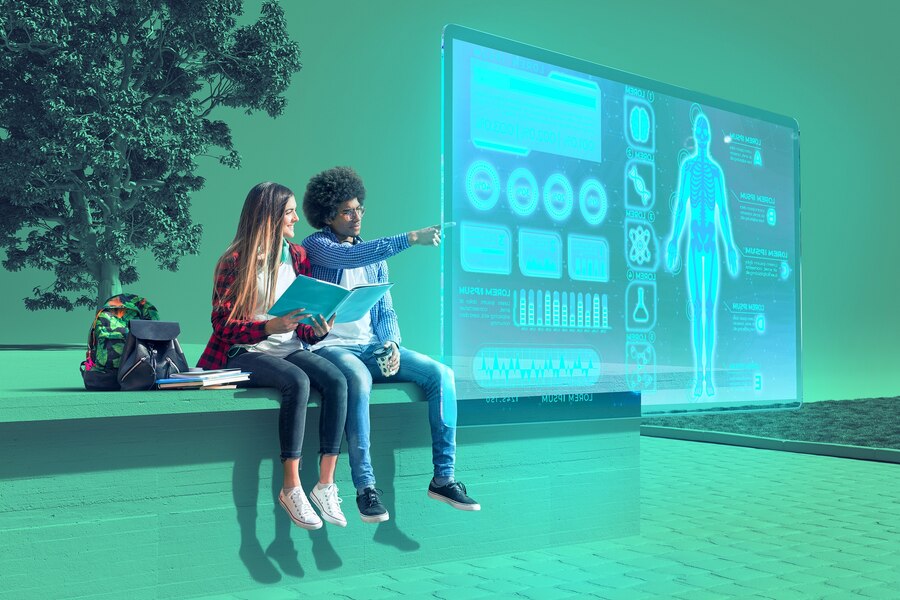Revolutionizing Education: Impact of the Metaverse on Learning Experiences
February 26, 2024

The concept of the metaverse, a virtual shared space that combines aspects of social media, online gaming, augmented reality, and virtual reality, has the potential to revolutionize education in multiple ways. Here is an insight into how this happens:
Immersive Learning Environment
The metaverse can offer immersive and interactive 3D environments that allow students to explore concepts in a more engaging way. This way, challenging subjects like history or complex scientific phenomena can easily be explained through simulations and virtual experiences.
Personalized Learning
AI algorithms in the metaverse can analyze individual learning styles and preferences and execute personalized learning experiences tailored to individual student needs. Such customized content provision can help students grasp concepts at their own pace.
Real-World Simulations
The metaverse can simulate real-world scenarios, allowing students to apply theoretical knowledge to practical situations. This is particularly valuable for fields like medicine, where virtual surgeries or patient interactions can provide practical experience.
Inclusive Education
The metaverse has the potential to make education more inclusive by accommodating different learning styles, preferences, and accessibility needs for students with diverse backgrounds and abilities.
Global Collaboration
Students from different parts of the world can collaborate on projects, attend virtual classes together, and share cultural experiences without physical boundaries. This can also enhance cross-cultural understanding and prepare students for a more interconnected world.
Enhanced Social Learning
The metaverse can facilitate social interactions, even in remote learning environments, fostering a sense of community among students and contribute to more holistic learning experiences.
Access to Experts and Resources
Virtual classrooms within the metaverse can bring in experts from specialized fields for guest lectures and discussions. Students can also access digital libraries, attend interactive tutorials, and use other educational resources seamlessly.
Career Readiness Programs
Simulations of real-world workplaces and industries in the metaverse can help students develop practical skills and gain insights into their desired careers.
Continuous Learning and Professional Development
The metaverse can serve as a platform for continuous learning and professional skill enhancement via virtual conferences, workshops, and training sessions throughout a person’s career.
While the potential benefits are significant, it’s crucial to address challenges such as digital inequality and privacy concerns to ensure the successful integration of the metaverse into education.

